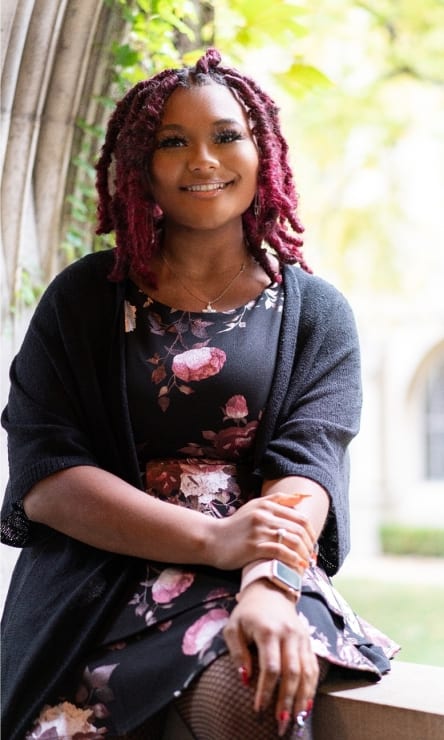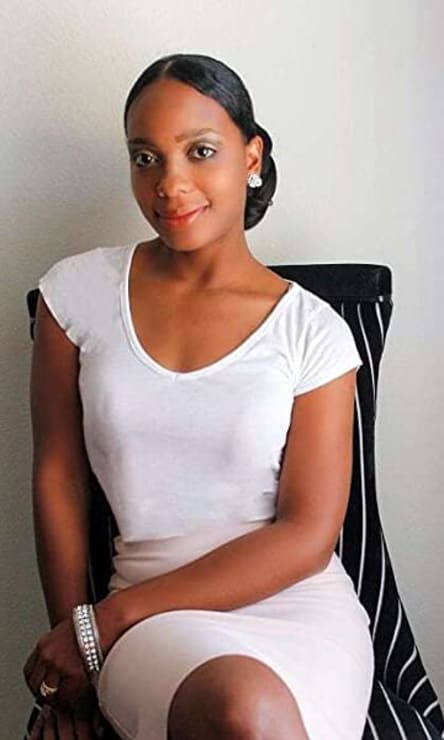College Guide for HBCU Students
Historically Black colleges and universities (HBCUs) were established to educate Black students in the United States. HBCUs offer education and mentorship opportunities with a goal to uplift Black communities. Over 100 HBCUs can be found across the country and are accessible to all students.
HBCUs contribute significantly to the graduation rates of Black students. The United Negro College Fund (UNCF) reports that — despite making up just 3% of the accredited colleges and universities in the U.S. — HBCUs educated about 10% of Black students nationwide and awarded about 17% of the bachelor’s degrees earned by African American students in 2014.
This guide provides helpful information and resources for aspiring HBCU students.
Key Trends for HBCU Students
According to Dr. Kimberly Brown Pellum, people are realizing the value of HBCUs. She says, “corporate entities and private donors are increasing support, while alumni giving is also on the rise. For so long, HBCUs have done much more with much less”. HBCU graduates include hollywood blockbuster producers, history-making producers, global moguls, art connoisseurs and philanthropists. She continues “If the current trends continue, the possibilities are endless.” Here are a few notable trends.
Black Student Enrollment
Black enrollment at HBCUs increased by 15% from 1976 to 2019, according to the National Center for Education Statistics (NCES). HBCUs enroll roughly 300,000 students each year. Seventy-six percent of students at these schools identify as Black or African American.
HBCU Degrees Earned
In 2018-19, NCES reported over 48,000 students earned degrees from HBCUs. According to the U.S. Census Bureau, the overall percentage of African Americans, ages 25 and over, with a bachelor’s degree or higher increased from 19.8% to 26.1% from 2010 to 2019.
Black STEM Graduates
According to UNCF, about 25% of African Americans with science, technology, engineering, and math (STEM) degrees graduated from HBCUs. Additionally, in 2020, the National Science Foundation established a center to learn from the successes that top HBCUs have achieved in terms of undergraduate STEM education.
Top professions represented by HBCU graduates: According to the Thurgood Marshall College Fund, 80% of Black judges, 50% of Black lawyers, 40% of Black members of Congress, and 40% of Black engineers graduated from HBCUs.
Challenges and Barriers to Success
Dr. Brown Pellum says, “students, regardless of where they attend, HBCU or otherwise, are facing incredible amounts of debt post-graduation.” But financial barriers are just one of the many obstacles students face today.
School Funding
HBCUs increasingly experience hardships when it comes to obtaining financial funding. As a result, some HBCUs find it challenging to remain open. They may be forced to close their doors or find alternative ways to fund their institutions. Despite these difficulties, many students and alumni talk about how they value their HBCU education.
Financial Burden for Black Students
Gaps in federal and private funding can have an impact on HBCUs and their students. Black students rely more heavily on loans to pay tuition costs. According to NCES, Black students take out student loans at higher rates than students of other races. Black students may also take more time to pay off student loan debts than non-Black students. Pay disadvantages after graduation can be one contributing factor to this. Taking longer to pay off loan debts also can limit wealth gain.
Black Representation Matters
It is common for Black students and faculty members to be underrepresented at U.S. colleges and universities. Black representation at HBCUs can help create inclusive college campuses for students.
At HBCUs, on average, Black students make up about 80% of the enrollment, according to UNCF. The percentage of Black faculty members is also much higher on an HBCU campus compared to primarily white institutions. Black students may find it easier to seek out role models and mentors among HBCU faculty members. These connections can help with a student’s college success.
Low graduation rates
Black students at public colleges and universities have lower six-year completion rates than other students across the country. Some HBCUs, such as Spelman College and Howard University, boast graduation rates above 50%. However, HBCUs have an average graduation rate of about 35%. Despite these lower rates, HBCUs still graduate more lower-income Black students than other U.S. colleges and universities.
Important Factors to Consider When Preparing for College
Choosing a College
Many factors must be considered when choosing a college. Geographic location, tuition cost, and degree options are just a few crucial variables. The importance of Black representation through cultural connection, student experience, and faculty mentorship are also top factors for many considering an HBCU.
Applying to College
Begin your college application process before your senior year of high school. Gathering letters of recommendation, writing personal statements, and taking required tests involve careful planning. The Common Black College Application allows students to submit one application to over 60 HBCUs for a small, one-time fee.
Paying for College
College tuition costs can be a heavy burden. Financial aid can alleviate the need to pay high out-of-pocket costs. Scholarships for Black students can help offset some tuition fees. Other financial aid options for students of color include grants, work-study programs, fellowships, and loans.
College Groups for HBCU Students
Asha Boyce, an undergraduate student at Howard University, says there are many ways to get involved on campus. “I love how the classes are like a family. Your professors care and take a vested interest in you. You are a person and not a number. Howard University also has the best homecoming in the nation so I am looking forward to taking part in that experience,” says Boyce.Organizations and Resources That Support HBCU Students
Destination HBCU
By visiting this site,students can find resources that support their transition from high school to an HBCU. Resources include information about college fairs and scholarship programs.
HBCU First
HBCU First works to increase college and career success for Black youths. Through leadership programs, internship offerings, and mentorship connections, HBCU First provides a resource hub for Black students.
The HBCU Foundation
This foundation provides scholarships of up to $10,000. HBCU students also can receive awards for leadership and volunteer service.
Historically Black Colleges and Universities - Undergraduate Program
Created by the National Science Foundation in 2000, HBCU-UP supports STEM education across HBCUs. The program provides funding to students and graduates across STEM disciplines.
Human Rights Campaign - HBCU Program
This program works to empower LGBTQ+ students at HBCUs, preparing them to serve as leaders and changemakers. The program’s leadership summit includes national and regional experiences.
National Association for Equal Opportunity in Higher Education
This organization advocates on behalf of HBCUs to develop programs, policies, and practices that support Black students. NAFEO offers volunteer opportunities, internship connections, and policy advocacy across the country.
National Historically Black Colleges and Universities Alumni Associations Foundation
This foundationgets funding and resources from corporations and government entities to support HBCU development. Membership for HBCU students and alumni grants access to a variety of resources and services.
Thurgood Marshall College Fund
Founded in 1987, TMCF exclusively represents the Black college community. TMCF provides college scholarship funding, supports research initiatives, and partners with K-12 schools to uplift the Black academic community.
United Negro College Fund
UNCF works to increase the number of African American college graduates. The organization offers scholarships for students and professional development opportunities. It also advocates for federal policy changes.
White House Initiative on Historically Black Colleges and Universities
This initiative provides leadership development to support HBCUs entering global markets. For students, the White House program selects HBCU scholars to represent their schools on a national stage.
Frequently Asked Questions About HBCUs
Meet the Student

Asha Boyce, 19, is from Houston, Texas. Being the daughter of an artist and movie producer, TJ Boyce, she has a natural talent for acting and singing, but her career goal is to help those affected by mental illness. Asha is currently a first-year student at Howard University studying psychology.
Meet the Faculty

With a terminal degree in United States history from Howard University, Kimberly Brown Pellum specializes in the history of women’s images, Southern culture, and the Black Freedom Struggle. Her contributions to publicly accessible history include work at the Smithsonian Institution’s National Museum of American History, The National Park Service, The Rosa Parks Museum, and Google’s Arts & Culture series. Kimberly is currently a member of the faculty in the Department of History at Florida A&M University.
Feature Image: Peter Cade / Stone / Getty Images

